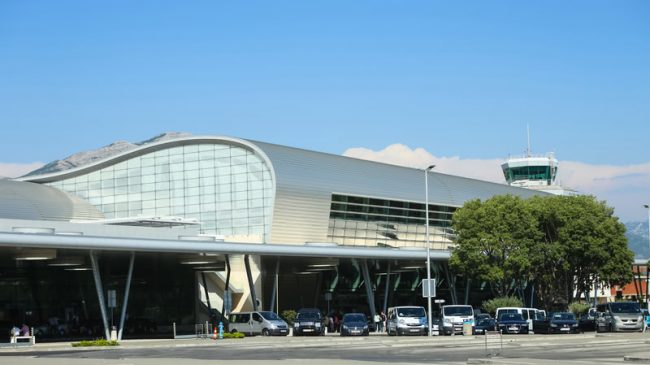Our natural first reaction is to fear that yesterday’s crash, too, may have been a terrorist act. Even if it turns out to be a mechanical failure, it is time for this country to get serious about airport security. And that means rejecting feel-good measures and putting in place things that will actually reduce the risk of future terrorist actions.
Hour-long lines to confiscate nail clippers from grandmothers don’t increase aviation security. Requiring 19-year-old National Guard troopers to stand around passenger checkpoints doesn’t do anything meaningful to prevent would-be terrorists from doing their evil work.
Much of the debate in Congress over who should operate passenger-screening positions ignores the larger issues of airport security: the thousands of people who have access to the tarmac and therefore to planes – caterers, cleaners, mechanics and others. As many investigations by the General Accounting Office and the Transportation Department’s Inspector General have revealed, airport security “leaks like a sieve.”
What’s really needed is a unified, systems approach to security at each airport. One party should be responsible – and accountable – for all aspects of security at each airport. That includes access control, information use and passenger and luggage screening.
The system at U.S. airports “leaks” because responsibility is so fragmented. A unified, systems approach, as exists at European airports, would require many changes.
Background checks would be required not only for screeners but for all who have access to the planes and tarmac. All such people would be required to have un-forgeable biometric ID cards. And the entire airport perimeter would be controlled – a place where armed National Guard troops might actually be useful.
The real failure on Sept. 11 was one of information. Federal security agencies failed to share with airlines information that should have singled out some of the hijackers as high-risk passengers. If such information were regularly available, both procedures and technology could be focused more on those people, reducing the impositions now being put on such low-risk travelers as grandmothers, retired people, children and many frequent business fliers.
The Air Transport Association last week proposed a sensible measure: the creation of a “trusted traveler” card, which would be issued to those passengers willing to provide detailed background information to establish that they are not security risks. They’d get a special ID card containing a biometric identifier (such as an iris scan) to ensure that only the person who’d been cleared could use the card. This would let those travelers avoid long lines and basic questioning. More important, it would permit advanced screening technology to be focused more intensively on a smaller number of people, including those more likely to be high-risk persons.
It’s possible, at significantly higher cost, to add thousands more baggage X-ray machines, so that all checked bags (not just all carry-on bags) can be screened. That’s the practice in Europe, where terrorism has been a real threat for several decades. It would likewise be possible to subject all passengers to the new back-scatter X-ray technology that can see through clothes and spot even ceramic knives that are not spotted via metal detectors. (Will air travelers put up with the higher costs and inconvenience of these measures? It would cost far less – in dollars, time, and intrusiveness – to use those measures only for those not carrying a trusted-traveler card.)
Our world has changed. Airport security has not. Many of the problems that existed before Sept. 11 still exist in this country. No matter what caused this latest tragedy, we deserve and should demand better airport security.
Robert W. Poole, Jr. directs the Transportation Studies Program at the Reason Foundation. He advised the White House Domestic Policy Council and several members of Congress on ways to improve airport security following the 9/11 terrorist attacks.

